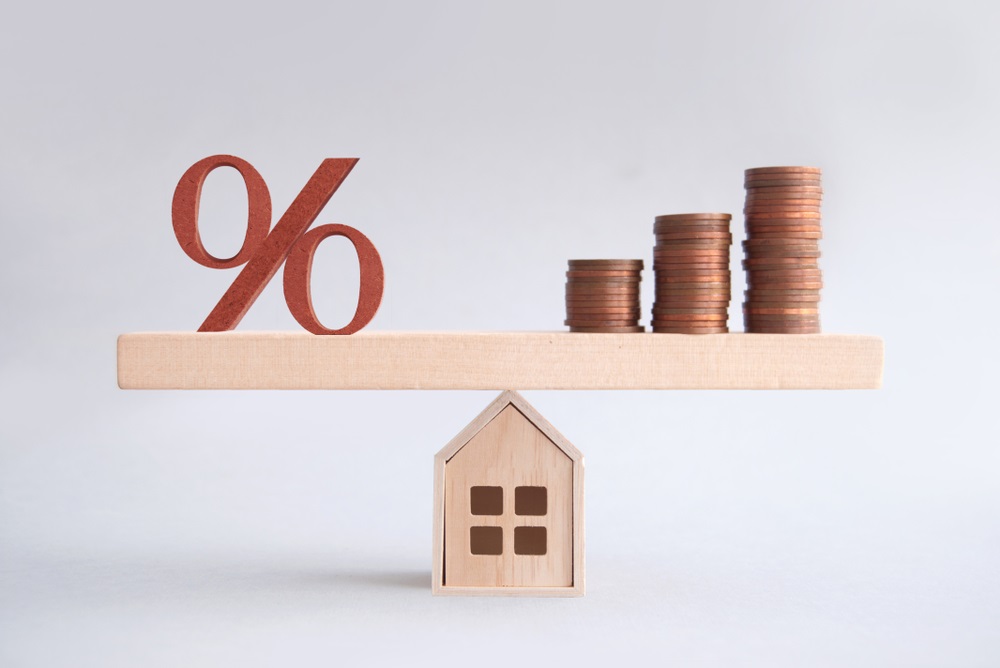Following last week's interest rate rise we take a look at some ways you can keep your mortgage repayments as low a possible
 So, last week it finally happened. After months of speculation the Bank of England put interest rates up from 0.1% to 0.25%.
So, last week it finally happened. After months of speculation the Bank of England put interest rates up from 0.1% to 0.25%.
It’s just a small tweak which may take a while to filter through to the mortgage-paying public but it’s enough to give many of us that unsettling feeling that, at some, point we may start paying more for our home loan.
If you are currently on a fixed rate mortgage, you’ll be sheltered from any rises to the Bank of England (BoE) base rate until your deal ends. If you are locked into a five-year deal and are at the beginning then you’ll be safe for some time.
If, however, your fixed rate is due to finish in the next year you may be concerned about the potential for future rate rises. Indeed, the predictions suggest more interest rate increases may follow in the next couple of years.
For those on a variable rate deal – sometimes known as tracker mortgages – experts believe lenders will pass on the BoE’s rate hike in the next few months.
The same applies if you are on your lender’s standard variable rate (SVR) – which will be much higher than the average tracker rate. Research by mortgage broker, Trussle, found borrowers on a SVR could see an additional £324.48 added to their mortgage annually following the base rate rise last Thursday.
And this comes at a time when households are struggling with energy price rises and high inflation. For anyone looking to move and get on the property ladder, there’s also the matter of record high house price growth too.
Miles Robinson, head of mortgages at Trussle, said: “Over the past year, house prices have seen record growth. But, while it’s positive that house prices remain strong, we must face up to what looks to be a difficult winter for household finances.
“Families are facing a steep rise in energy bills, as well as an increase in the general cost of living.”
With mortgages being the biggest outgoing many of us have, this is usually the best place to start if you want to look at making cuts, Miles explained.
Here are a few ways you may be able to dodge the impact of any interest rate rises. They may not all work for you, but perhaps there’s one trick here which will suit your situation and finances.
Remortgaging early
Whilst remortgaging before your deal ends means you may have to pay hefty exit charges (known as early repayment charges or ERCs), Miles reminded borrowers you can arrange your new deal up to six months before your current one finishes.
“The advice from us is to take advantage of the current deals sooner rather than later,” he said. Indeed, rates as they stand at the moment, are incredibly low so it’s worth making the most of these now if your deal expires in the next six months.
Miles added: “Previous research from Trussle found that people can save an average of £3,500 a year by remortgaging, which is equivalent to 15% of the UK’s average salary.”
Consider a Green Mortgage
A green mortgage offers incentives for having an energy efficient home by offering you more favourable rates.
Miles suggests checking the status of the home you are currently in or any new purchase to see if it has an A or B rating on the Energy Performance Certificate (EPC) as savings could be made here.
“Green mortgages can offer lower mortgage rates, cashback when you take out the mortgage, or additional borrowing at lower rates,” said Miles. “NatWest, Halifax and Barclays are lenders who offer green mortgages, with NatWest offering a reduced rate on a two-year or a five-year fixed-rate mortgage, along with cashback.”
Investigate part and part mortgages
Miles said: “If your income is not always steady (for example for those who rely on bonuses or commission payments) and you, therefore, need a lower monthly payment, part and part mortgages could be the way to go.
“This is where some of the loan is repayment and some is interest only. Good brokers can fit these products to suit your needs and then make sure you have an overpayment clause to allow you to take advantage and pay off more when that extra income comes in.”
Think about overpaying
While rates are low, now would be a good time to start paying that bit extra every month, or as a one-off, if you can, Miles explained.
Most mortgage deals will allow you to overpay by up to 10% per year – but check your paperwork to make sure. Miles reckons the amount that can be saved by doing this regularly is staggering.
According to analysis by Which? overpaying by just £50 per month can knock almost two years off your mortgage and save you over £5,000 during its lifetime.
Offset mortgages
Offset mortgages link your savings account to your mortgage and means lenders will treat any savings you have like mortgage overpayments.
Miles said: “You will still be able to dip into the savings you’ve chosen to offset, but this will affect the interest you pay. You will also need to have your savings and mortgage with the same provider.”
First-time buyers: Make your deposit count
The bigger your deposit, the lower the interest rate will be when you apply for your mortgage, says Miles.
He added: “This might be the time to ask the Bank of Mum & Dad to help out – they probably have a lower interest rate than the standard lenders! This is also completely normal, research has shown that 40% of buyers now need family support to purchase their first home.
“Ideally, a 20% deposit is a good starting point, but if a 25% were to be obtainable it is likely even better rates will be available. Trussle’s best first-time buyer mortgage is a two-year fixed rate at 1.68% from Principality Building Society.”
Speak to a broker
Whether you are a first-time buyer, moving home or just trying to manage the repayments on your current deal it’s a good idea to speak to an independent adviser if you are looking for further information and access to a wide range of mortgages.














